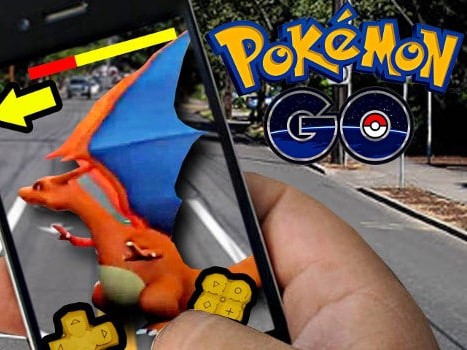
 Although the realm of video game playing may be traditionally associated with introverted personality types, the opposite can be true when it comes to games that actually get players out into the real world. That’s the conclusion from researchers at the University of British Columbia who say that more video games like the well-known Pokémon Go could be designed to help people dealing with social competence and social anxiety disorders.
Although the realm of video game playing may be traditionally associated with introverted personality types, the opposite can be true when it comes to games that actually get players out into the real world. That’s the conclusion from researchers at the University of British Columbia who say that more video games like the well-known Pokémon Go could be designed to help people dealing with social competence and social anxiety disorders.
Augmented reality game Pokémon Go became a worldwide phenomenon in the summer of 2016 when gatherings of phone-watching individuals first starting popping up on city street corners and parks in search of Pokéstops, battle gyms and, of course, animated little creatures. And while the fad continues today —the franchise just added a “dynamic weather” feature to its gameplay— Pokémon Go’s value for scientific inquiry is now being tapped.
“Pokémon Go presents a unique opportunity for examining individual characteristics that influence behaviour in the digital context,” say the authors of a new study, researchers from the Department of Psychology at UBC. “Personality and adjustment factors may influence behaviours in video games, much in the same way they do in face-to-face contexts.”
The researchers recruited 101 participants between the ages of 18 and 28 (average age of 20 years old) all of whom were current players of “PG.” Participants filled out a personality questionnaire and were then asked to head outdoors and play the game for 20 minutes, without any further instructions about playing (although they were given the incentive of a candy bar for either catching 15 Pokémon or visiting 10 Pokéstops).
Researchers found that those who were rated as extroverts by the questionnaire tended to perform better at the game, visiting more Pokéstops and travelling further afield, which says something about the nature of Pokémon Go but also about the people playing it.
“We found that players who are socially anxious might be self-conscious and less likely to engage in the game because they may fear others are judging them,” said Adri Khalis, graduate student in UBC’s department of psychology and study lead author, in a press release. “They may hesitate to play when others are watching and are less likely to collaborate with fellow players, like pointing out nearby Pokémon or sharing tips.”
Between eight and 13 per cent of Canadians experience social anxiety disorder (also known as social phobia) at some point in their lives. One of the most common psychiatric illnesses, the condition is characterized by either a fear of situations that may have the potential for embarrassment or humiliation in front of others. The persistent fear concerning such situations is said to be the cause of the anxiety. Social anxiety disorder often goes untreated and can lead to behaviours such as self-medication with alcohol to alleviate performance anxiety. Medication and psychotherapy are common means of treatment, particularly exposure therapy, which involves an individual’s gradual immersion into the very types of situations that usually provoke their fears.
The researchers say that video games could be tailored to specifically address this need, by gradually exposing players to social aspects such as opportunities for communication.
“In the beginning, players might only need to communicate with a person through text, but as the game reaches a higher level, they may have to actually be physically close to other players to collaborate and win,” says Khalis. “The game provides a context in which interacting with others might be easier than walking up to a stranger and striking up a conversation from the get-go.”
The research is published in the journal Personality and Individual Differences.
Leave a Reply
You must be logged in to post a comment.




 Share
Share Tweet
Tweet Share
Share




Comment